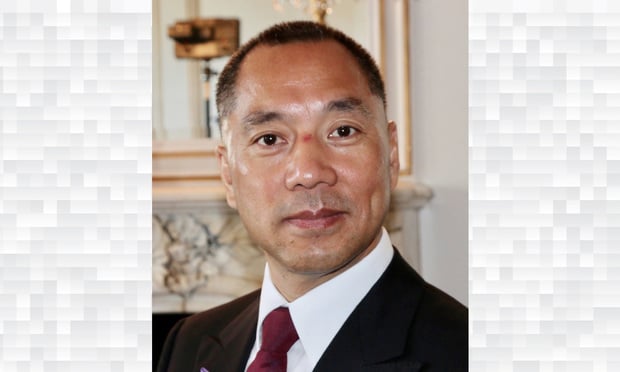A $3 million legal malpractice suit that exiled Chinese billionaire Guo Wengui filed against his former lawyers at Boies Schiller Flexner has been sent to arbitration, with a judge calling his arguments “meritless,” “frivolous” and “unavailing.”
Manhattan Supreme Court Justice Joel Cohen said the broad arbitration clause in Guo’s 2017 retainer agreement with Boies Schiller applied to his malpractice and breach of fiduciary duty claims, despite the former client’s insistence that arbitration would be a “wholly unsuitable forum” to make his case.


 Guo Wengui in April 2017. (Photo: Voice of America via Wikimedia Commons)
Guo Wengui in April 2017. (Photo: Voice of America via Wikimedia Commons)





